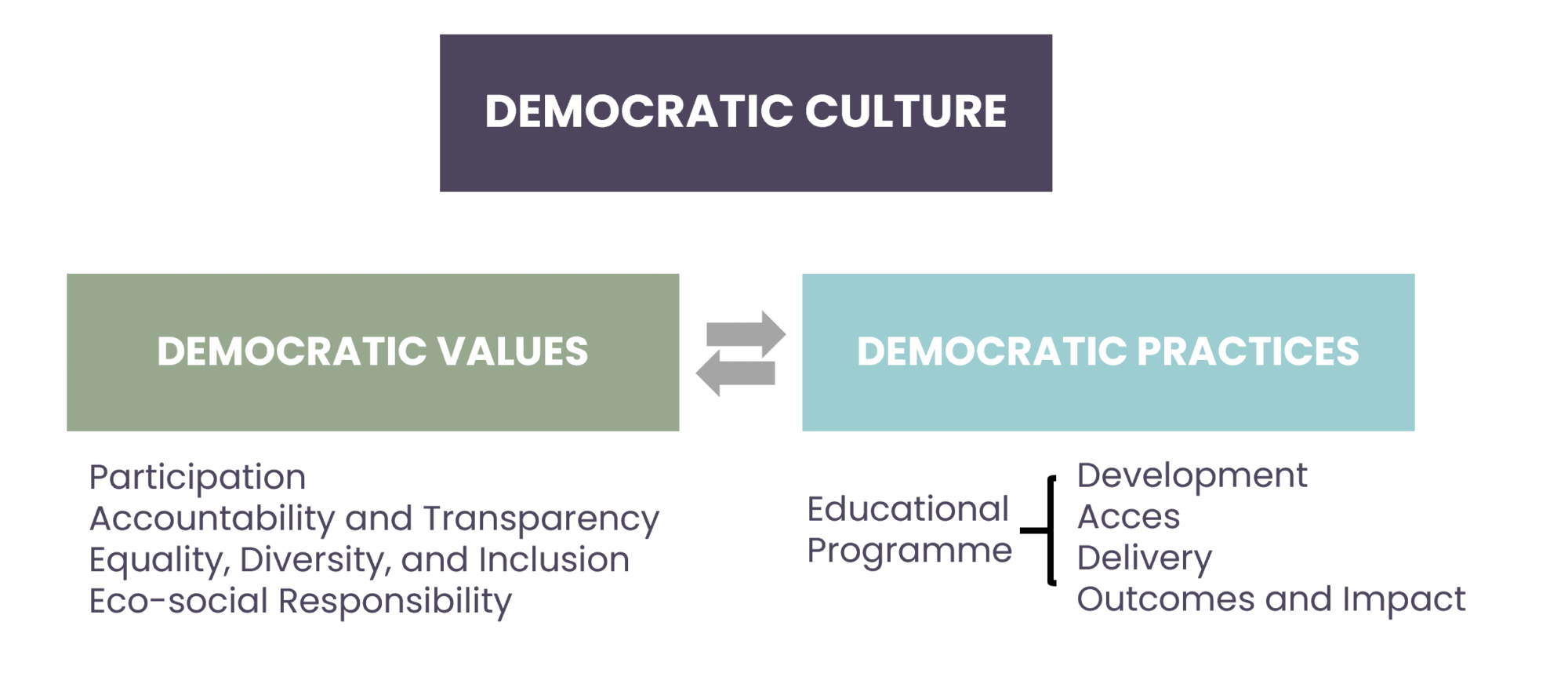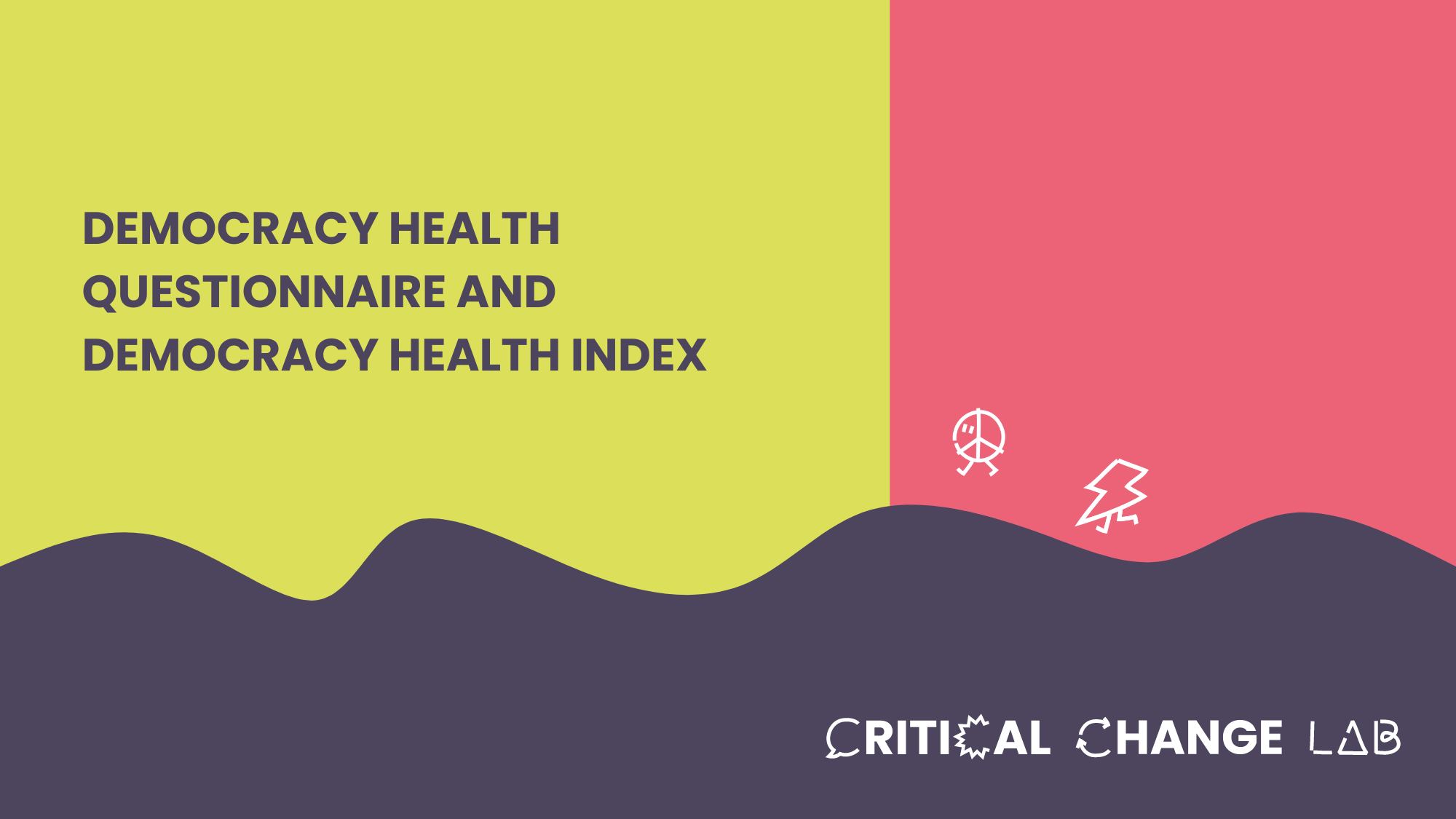In order to map the democratic health of different learning environments in Europe, researchers from the Institute for Social Research in Zagreb developed the Democracy Health Questionnaire (DHQ) as part of the Critical ChangeLab project.
To gain comprehensive insight into the democratic culture of an institution – its democracy health – two broad areas were defined to be assessed: democratic values (participation, accountability and transparency, equality, diversity and inclusion (EDI), eco-social responsibility) and democratic practices. Each of the four values was linked to a set of items reflecting democratic practices within the four domains representing the life cycle of an educational program – development, access, delivery & outcomes and impact.
Representatives of formal and non-formal educational institutions – teachers, instructors, youth workers, etc. – were asked to assess the importance and current level of democratic values and practices and how they expect them to develop in the next 5 years. Responses from 761 schools and 472 non-formal education institutions from 9 European countries (Austria, Croatia, Finland, France, Greece, Ireland, the Netherlands, Slovenia and Spain) were collected and provide a valuable insight into the role of democratic values and practices in education in Europe.

What is the state of democracy health in schools?
Overall, the results show that all democratic values are considered very important. However, accountability and transparency, as well as the value of EDI, seem to be more present than the values of eco-social responsibility and participation. The highest importance was placed on collaborative decision-making as a democratic practice in the development of schools’ educational programs, as well as to the equality of opportunity in access to schools’ educational programs for individuals from different socio-economic backgrounds. Less importance was assigned to student influence on the choice of teaching and learning methods, and on learning content, indicating less focus on student participation in the development of the curriculum.
And in non-formal educational programs?
The responses from institutions offering non-formal educational programs showed a similar picture: Addressing the needs of diverse groups within the wider community and considering a variety of viewpoints was perceived as highly important and quite present. However, as with schools, there is potential for democratic growth, especially in relation to shared, collaborative decision-making in the process of developing educational programs and access to educational programs as a whole, which raises questions about equity in opportunities to participate in non-formal educational programs.
How can we improve democratic health in both educational contexts?
Based on the Democratic Health Questionnaire, the Democratic Health Index suggests several actions to improve democratic culture in schools and other institutions:
- Implement collaborative decision-making processes that actively involve stakeholders from diverse backgrounds in the development of educational activities and content.
- Encourage open dialogue, consultation, and consensus-building to ensure that the needs and interests of all community members are considered.
- Encourage educators to collaborate with learners in co-creating individualized learning plans that match with their interests, strengths, and learning styles.
- Provide training and support for educators to adopt flexible and responsive teaching strategies that meet learners’ preferences and needs.
- Support learner-led initiatives and projects that enable learners to take ownership of their learning experiences.
- Encourage learners to propose and implement innovative learning activities, projects, and events that reflect their interests and promote active engagement in the learning process.
- Ensure greater involvement of the wider community.
Join our newsletter to continue to be updated on what we’re up to at #CriticalChangeLab. We’ll always keep it interesting, and only send you updates for as long as you want us to.
